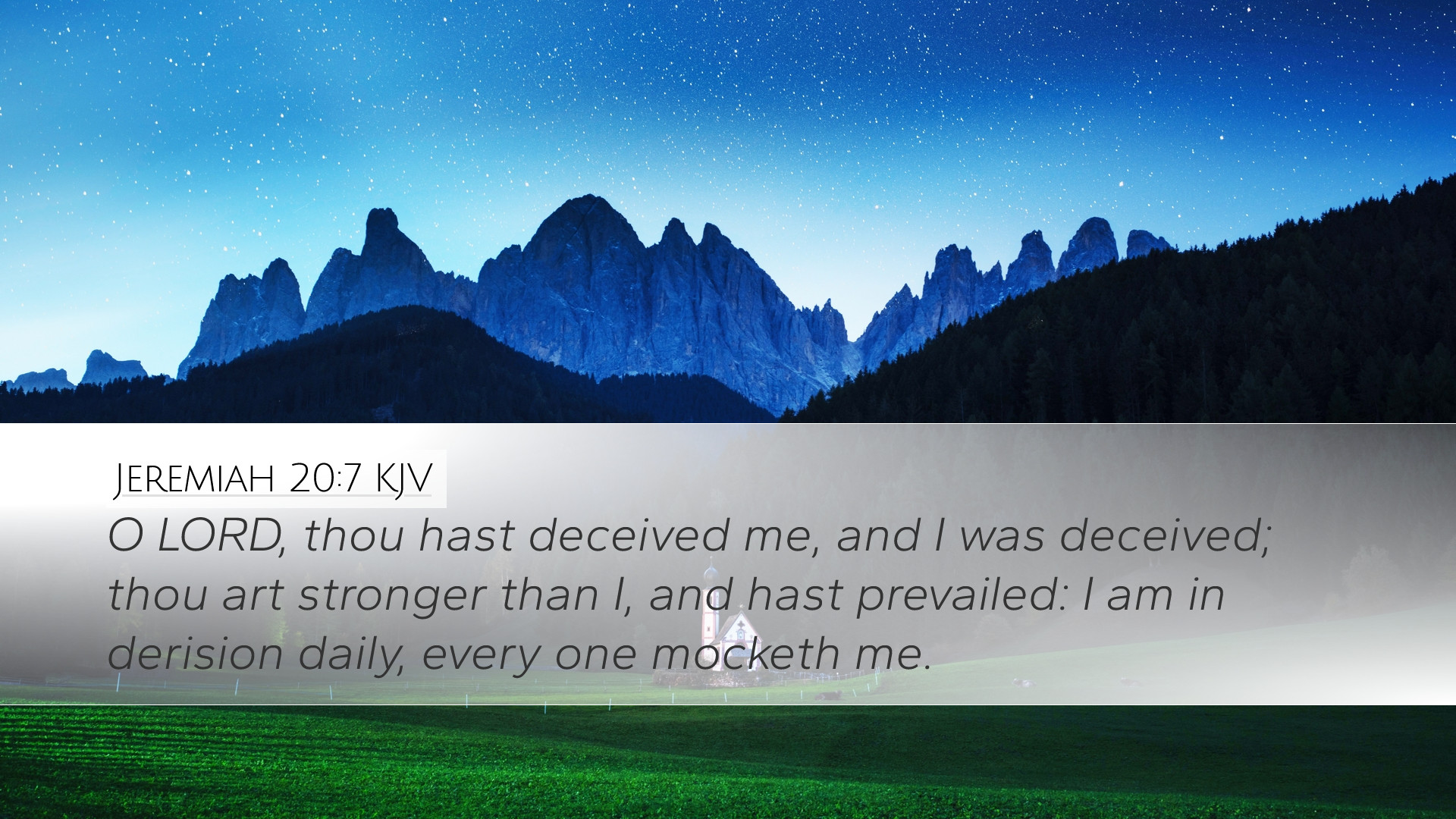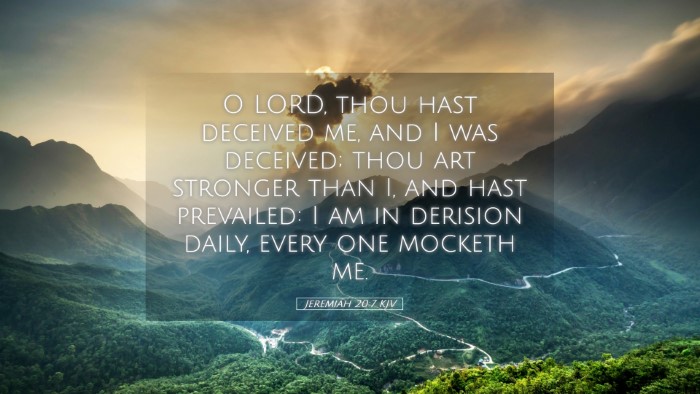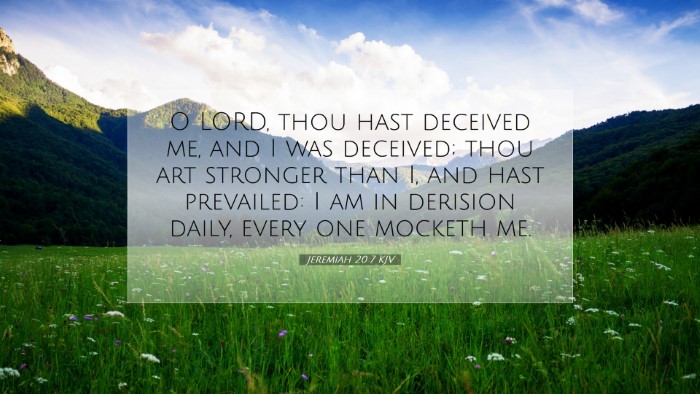Commentary on Jeremiah 20:7
Verse Reference: Jeremiah 20:7 - "O LORD, thou hast deceived me, and I was deceived: thou art stronger than I, and hast prevailed: I am in derision daily, every one mocketh me."
Introduction
This verse captures the intense emotional turmoil of the prophet Jeremiah as he grapples with his prophetic call and the opposition he faces. The feelings of betrayal and mockery expressed in this verse serve as a profound reflection of Jeremiah's struggle. In this commentary, we will explore various insights from public domain commentaries, highlighting its theological significance and practical applications for sermons and theological discussions.
Context of Jeremiah 20:7
The Book of Jeremiah is set during a volatile period in Israel's history, when the nation faced impending judgment due to their persistent idolatry and disobedience to God. Jeremiah, appointed as God's prophet, is charged with delivering messages of both warning and hope to a rebellious people. This particular verse appears after a narrative where Jeremiah has endured significant suffering for his prophetic ministry, including physical punishment and social ridicule.
Analysis of Key Phrases
-
"O LORD, thou hast deceived me"
Jeremiah's lament begins with an accusation against God that may shock the reader. Matthew Henry comments that this reflects the depth of Jeremiah's despair and his struggle with the overwhelming burden of his calling. The prophet feels as though he was led into a trap—a common sentiment for those who suffer for righteousness in a hostile world.
-
"I was deceived"
Albert Barnes discusses how this phrase showcases Jeremiah's confusion about his divine mission amidst societal scorn. There is a profound sense of isolation as he feels betrayed not only by society but also by God whom he had served faithfully.
-
"thou art stronger than I, and hast prevailed"
Jeremiah acknowledges God’s sovereignty. Adam Clarke elaborates that this reflects Jeremiah’s understanding of God’s ultimate authority over his life and ministry, underscoring the tension between divine purpose and personal suffering.
-
"I am in derision daily, every one mocketh me"
This expression of daily derision illustrates the relentless nature of Jeremiah’s suffering. The external ridicule he faces becomes a metaphor for the internal conflict swirling within. Matthew Henry observes that true prophets often become targets of ridicule, and this speaks to the challenges faced by believers who stand firm in their convictions.
Theological Themes
This verse encompasses several theological themes crucial for understanding God’s nature and His dealings with humanity:
-
The Nature of Prophetic Call: A theme that emerges is the cost of being a prophet. Jeremiah’s pain reveals the sacrificial nature of truly following God’s call.
-
The Sovereignty of God: Despite Jeremiah's feelings of betrayal, the acknowledgment of God's sovereignty emphasizes the belief that God's purpose will prevail, even when it is not immediately clear to His servants.
-
The Reality of Human Emotion: Jeremiah’s candid confession provides a model for how believers can express their struggles before God—a reminder that lament is part of the faith journey.
Lessons for Today
The reflections from Jeremiah 20:7 invite contemporary readers to engage with their faith authentically. Pastors, students, and scholars can glean several critical applications from this passage:
-
Embracing Vulnerability:
Believers are encouraged to recognize that feeling deceived or challenged in faith does not equate to a lack of faith. Open discussion about doubts and struggles can lead to deeper faith and community.
-
Commitment to God's Call:
In light of suffering for one’s faith, there is a call to diligence in ministry despite challenges and ridicule, emulating Jeremiah’s unwavering commitment to God.
-
Understanding God’s Plan:
Believers are urged to cling to the promises of God, recognizing that His plans may unfold in ways that are not immediately visible to us, much like Jeremiah's prophetic missions.
Conclusion
Jeremiah 20:7 encapsulates the struggle of a prophet against his burdens, feelings of isolation, and the apparent contradiction between his calling and the contempt he faces. Through this verse, one can appreciate the complex emotions that accompany a life dedicated to God’s purposes. As pastors, students, and scholars reflect on this passage, they are invited to engage with Jeremiah’s lament, recognizing the timeless struggle between faith and human experience, and the undeniable strength that God provides amidst our trials.


